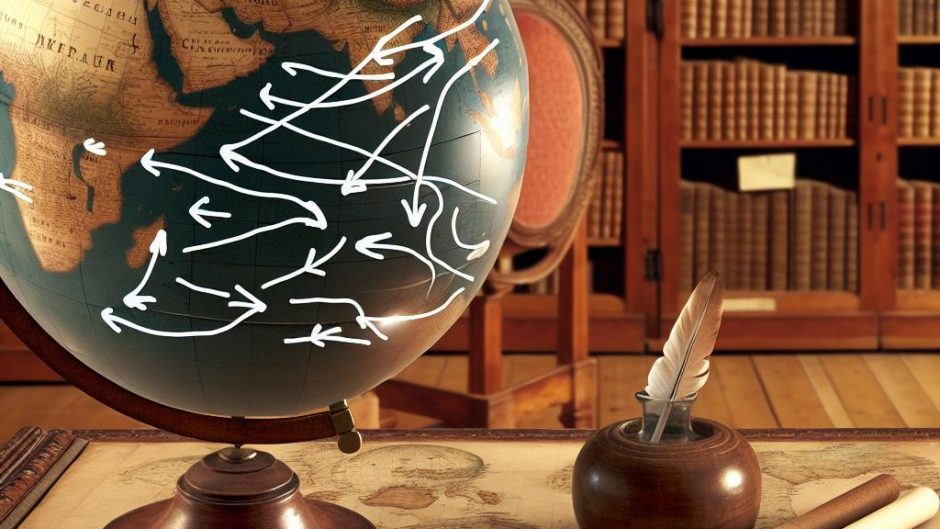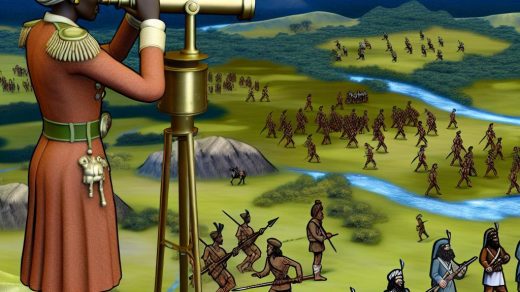Understanding Strategic Expansion
Expanding an empire is a complex undertaking that encompasses strategic foresight, resource management, and timely execution. Growth often depends on understanding the dynamics of geopolitics, economic capabilities, and sustainable governance practices.
Strategic Planning and Vision
A pivotal step in expanding an empire is formulating a long-term strategic plan. This involves identifying areas for potential growth and analyzing both the advantages and challenges of these regions. Leaders engage in a *thorough analysis* of political climates, economic opportunities, and cultural landscapes to align expansion plans with broader organizational objectives.
Utilizing Diplomatic Channels
Establishing diplomatic relationships is crucial for peaceful expansion. Diplomatic agreements can pave the way for alliances, trade agreements, and non-aggression pacts. These relationships are instrumental in accessing new territories sans conflict, streamlining the expansion process.
Effective diplomacy can also serve as a tool for conflict resolution, allowing for negotiation and compromise. This is especially important when dealing with regions that have existing alliances or are wary of foreign influence. Diplomatic channels lay the groundwork for trust and cooperation, enabling smoother acquisition and integration of new territories.
Economic Leverage
In addition to diplomacy, economic leverage plays a critical role. By strengthening their economic base, empires can project power and influence. This might involve boosting production capabilities, optimizing trade routes, and investing in technology. An empire with a strong economy can persuade new regions to join voluntarily through promises of economic prosperity.
An economy’s strength can also aid in softening resistance to expansion, as economic incentives often appeal more than military coercion. A robust economy enables funding of developmental projects that benefit both existing and newly acquired territories, facilitating goodwill.
Military Strategies and Logistics
Despite the preference for peaceful expansion, empires must be prepared for military confrontation. This involves assembling a robust military, constructing a logistics network for troop movement and supply lines, and maintaining readiness through continual training exercises.
Technological Advancements in Military
Modern empires must focus on technological advancements to gain a competitive edge. Development of advanced weaponry, improved communication systems, and new military doctrines that leverage technological innovations contribute to military power. These advancements ensure preparedness, enabling an empire to address both defensive and offensive needs more effectively.
Innovative technology also shortens response time and improves decision-making processes. Efficiency in logistics and communication reduces the chances of missteps in critical situations, thereby strengthening military operations.
Defensive and Offensive Strategies
A comprehensive military strategy balances both defense and offense. Defensive tactics protect existing territories, and offensive strategies are sometimes necessary for acquiring new territories. These plans must consider the unique geographic and political landscapes of the regions involved, requiring adaptability and precision.
Creating a loyal and disciplined military force dedicated to the empire’s objectives is paramount. This is achieved through a combination of regular training, moral incentives, and a clear chain of command. Furthermore, understanding emerging trends in global military strategies allows for continuous improvement and adaptation.
Cultural Influence and Integration
Once new territories are acquired, the challenge is to ensure the smooth integration of diverse cultures into the larger empire. This entails promoting mutual cultural understanding and respect, alongside infrastructural projects and educational programs that foster equitable development.
Education and Language
Implementing language programs and educational systems facilitates better communication and integration within an empire. Education becomes a tool for empowerment and helps align the populace with the empire’s broader mission. Schools can propagate cultural heritage and values, fostering a sense of unity.
Instruction in the local dialects alongside the empire’s official language ensures inclusivity, allowing for seamless cultural exchange. The spread of education also bolsters innovation and economic vitality, contributing to overall prosperity.
Infrastructural Development
Investing in infrastructure is essential for unifying an empire’s diverse territories. This includes developing transportation networks, communication systems, and essential services to enhance economic activity and quality of life. Infrastructure projects enable connection among previously disparate regions, promoting exchange and cohesion.
Efficient infrastructure promotes commerce and reduces logistical complexities, allowing for smoother administration. This investment paves the way for improved access to resources, leading to a more balanced distribution of wealth and opportunities across the empire’s expanse.
Navigating Political Challenges
Empire expansion often meets political challenges, both internally and externally. Internally, maintaining political stability is crucial, requiring consistent communication with all stakeholders to preempt dissent. Internally, maintaining transparency and involving various political entities in decision-making processes fosters unity and loyalty among the constituents.
Externally, diplomatic acumen is necessary to negotiate with neighboring entities and address any geopolitical tensions that may arise from expansion efforts. Negotiations should focus on mutual benefits and be conducted with respect to existing international norms, ensuring minimal friction.
Balancing these political factors demands strategic thinking and diplomacy that can navigate complexities and sustain relationships, ensuring a stable and prosperous empire.
By analyzing historical examples and employing strategic foresight, contemporary leaders can derive valuable lessons, refining their approach to empire expansion. Being equipped with this knowledge prepares an empire to seize opportunities as they arise and effectively integrate new territories, ultimately strengthening its position in the global arena.
For those seeking to explore this topic further, numerous online resources offer detailed case studies and analyses of empire expansions throughout history. These insights are invaluable for dissecting the myriad components involved in such endeavors. You may access some of these resources here: Learn more about historical empire expansions.
This article was last updated on: August 10, 2025






Recent Comments